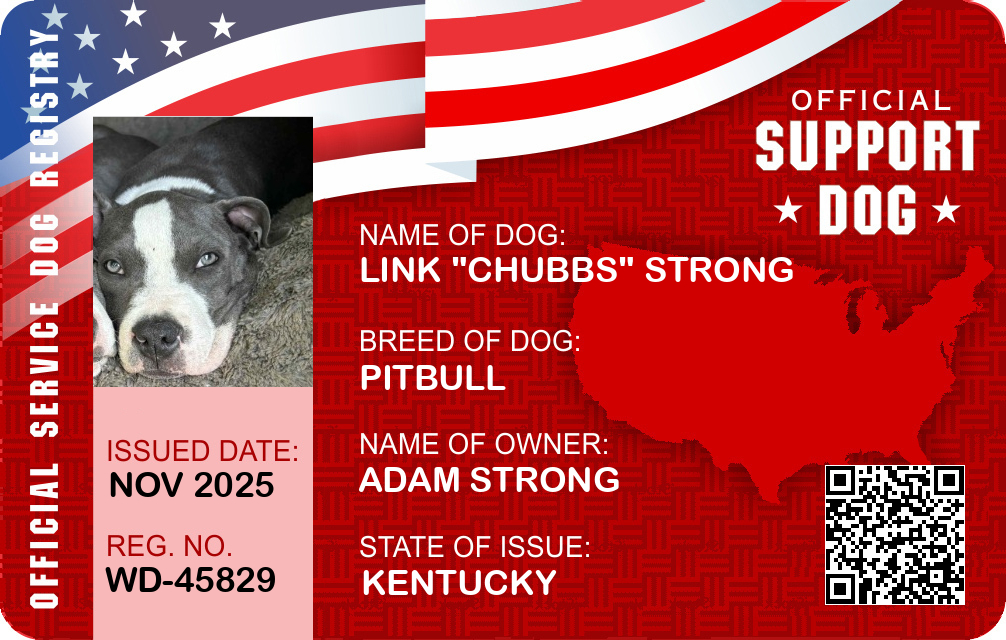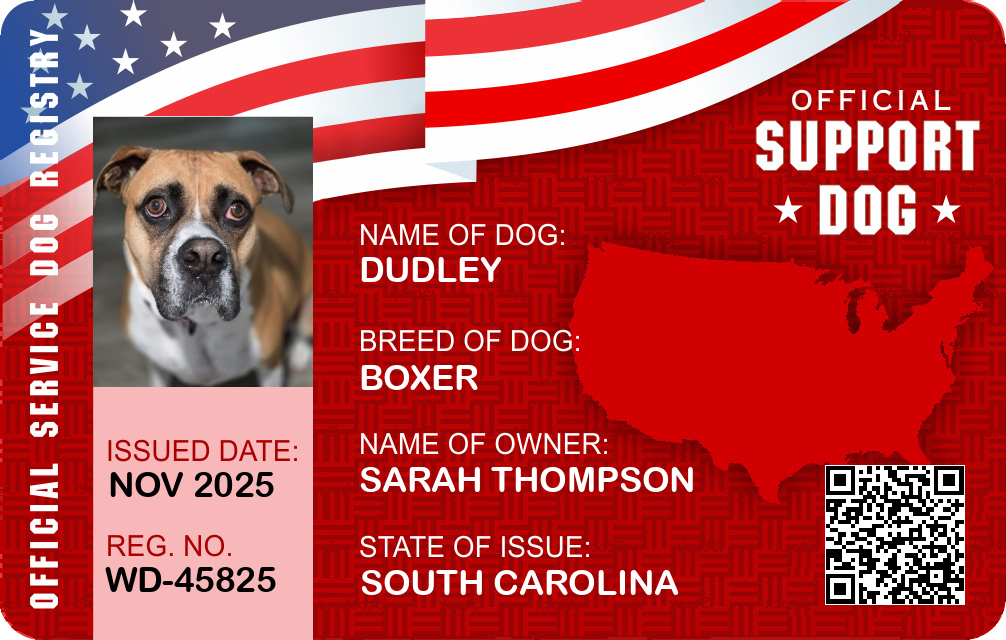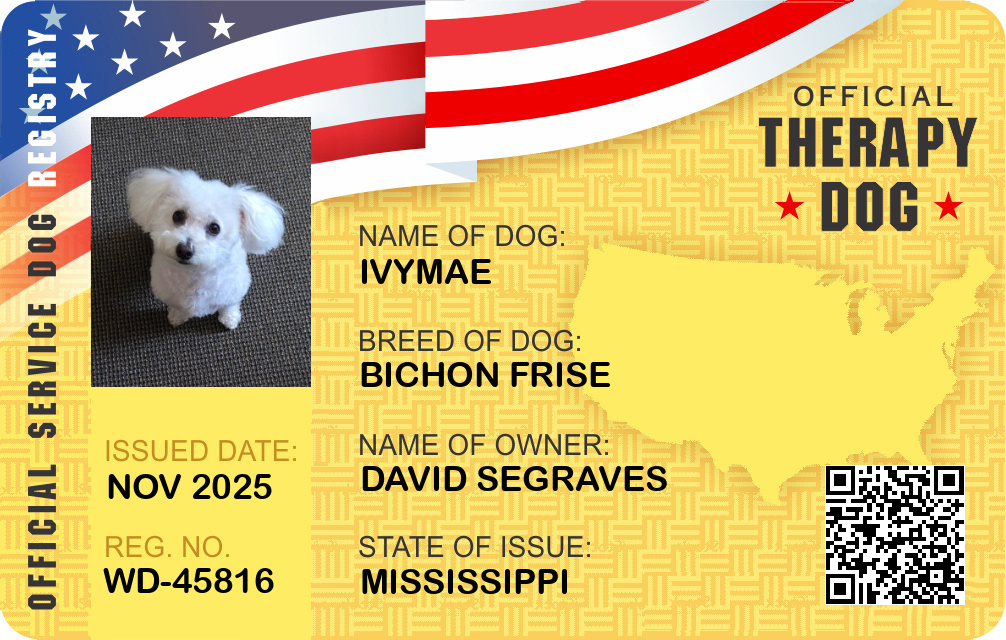Vermont Emotional Support Animal Laws

Overview of ESAs and Legal Definitions in Vermont
Vermont's approach to emotional support animals (ESAs) operates within the framework set by federal laws, while incorporating specific state-level stipulations that guide the practical implementation of ESA rights. Understanding the unique distinction between emotional support animals and other assistance animals like service dogs is crucial for both ESA owners and those who interact with them in Vermont.
What is an Emotional Support Animal?
An emotional support animal is a companion animal that provides therapeutic benefit to a person with a mental or emotional disability. Unlike service animals, ESAs are not required to perform specific tasks related to the handler's disability. Their primary role is to offer companionship, alleviate symptoms of psychiatric conditions, and enhance the overall emotional well-being of their owner. In Vermont, ESAs can include a variety of animals, though dogs and cats are most common.
How ESAs Differ from Service Animals
Service animals, as defined under the Americans with Disabilities Act (ADA), are specially trained to perform specific tasks that assist a person with a disability. This distinguishes them sharply from ESAs, which do not require specific training related to a mental or physical task. In Vermont, and under federal law, service animals are typically limited to dogs and in some cases, miniature horses, whereas ESAs can be of nearly any species. This delineation is crucial as it impacts the different rights and access ESAs and service animals are granted.
Key Federal Laws Affecting ESAs (e.g., FHA, ACAA)
Two critical federal laws apply to ESAs:
- The Fair Housing Act (FHA): This law ensures that individuals with ESAs are protected from discrimination in housing. Landlords must make reasonable accommodations for ESA owners, even if a property has a no-pet policy.
- The Air Carrier Access Act (ACAA): This law previously allowed ESAs to travel with their owners in aircraft cabins without additional fees. However, as of January 2021, the U.S. Department of Transportation has revised the rules to no longer extend this requirement, limiting it strictly to service animals.
These federal guidelines provide the ground rules that Vermont institutions generally have to follow, but state-specific interpretations and implementations can modify these basic principles to fit local needs.
State-Specific ESA Laws in Vermont
Vermont aligns its ESA laws primarily with federal standards but has specific applications in various public and private domains.
Housing Rights and Responsibilities
Under the FHA, Vermont ESA owners are entitled to seek housing with their emotional support animals, even in properties that impose restrictions on pets. Vermonters cannot be charged extra fees or deposits for their ESAs. Landlords must evaluate ESA accommodation requests with a focus on whether the animal poses any specific undue burden or safety risk. However, ESA owners are liable for any damages an ESA might cause to the property.
Public Access and Accommodation
Unlike service animals, ESAs do not enjoy full access rights to public places such as restaurants, stores, or other businesses in Vermont. Public entities are not required to permit ESAs unless they choose as a matter of policy. This lack of mandated access recognizes the differing roles of ESAs and service animals. However, businesses frequently adopt inclusive policies to accommodate ESA owners as community goodwill gestures.
Transportation and Travel Rules
Transportation regulations, post-ACAA amendments, no longer require airlines to accommodate ESAs, confining guaranteed access to trained service dogs. However, for other forms of local transportation within Vermont, ESAs often remain welcome at the discretion of the transport provider. Owners should inquire and comply with individual carrier policies to ensure a smooth travel experience.
Employment and Workplace Considerations
While no federal or Vermont-specific laws require employers to accommodate ESAs in the workplace, requests for ESAs as a reasonable accommodation can be negotiated. Employers may approve such accommodation if there's a demonstrated need related to an employee's medical condition and if the presence of the ESA does not pose an undue hardship to the business operations.
Documentation, Requirements, and Processes in Vermont
Documentation is a cornerstone in validating the presence of an ESA and ensuring its legal recognition in relevant contexts.
ESA Letters and Who Can Issue Them
A legitimate em
Register Your Dog Instantly
otional support animal letter is essential. It must be issued by a licensed mental health professional such as a psychiatrist, psychologist, or licensed clinical social worker. This letter confirms the existence of a mental health condition and the role of the ESA in providing necessary support. In Vermont, this documentation must come from a recognized professional to avoid challenges regarding its validity.Registration, Certifications, and Common Misconceptions
There is no formal registration system for ESAs either at federal or Vermont state levels. Websites or services offering ESA registration or certification are often misleading and unnecessary. The only recognized requirement is a valid ESA letter from a licensed mental health professional.
Landlord, Business, and Provider Verification Rules
When requesting ESA accommodations, entities such as landlords may verify the authenticity of the ESA letter. However, they cannot inquire about the nature of the disability or demand access to additional medical records. Businesses are encouraged to review the documentation policy thoughtfully to uphold legitimacy without infringing on privacy laws.
Rights, Limitations, and Legal Risks
Understanding the balance of rights and limitations can help ESA owners effectively navigate their responsibilities.
Rights ESA Owners Have in Vermont
ESA owners in Vermont are entitled to fair housing under the FHA, along with certain accommodations in transportation, under guidelines set by various carriers. While public access remains restricted in scope compared to service animals, ESA owners can often secure access through dialogue and agreements with businesses willing to accommodate.
Limits on ESA Protections and Common Restrictions
ESAs are not entitled to accompany their owners into all public spaces, educational facilities, or workplaces as service animals are. Non-compliance or misuse of ESA status can lead to revocation of accommodations, and businesses can refuse ESAs if they become disruptive or pose a health risk.
Penalties for Fraud or Misrepresentation
Misrepresentation of pets as ESAs or ESAs as service animals is subject to penalties in Vermont. Falsely presenting an animal to gain unwarranted access or privileges can incur fines and legal action. It is crucial for ESA owners to uphold integrity in the portrayal of their animals’ roles and verification.
Practical Guidance for ESA Owners in Vermont
How to Qualify for an ESA Legitimately
Individuals seeking an ESA should undergo an assessment by a licensed mental health professional who can ascertain the ESA’s value in the treatment or management of their condition. Once confirmed, obtaining a genuine ESA letter is the next step in establishing legitimacy.
How to Talk to Landlords, Airlines, and Employers
Open, honest communication is key when discussing ESA accommodations. Be prepared with proper documentation, such as the ESA letter, and be ready to explain the necessity of your ESA in maintaining your health condition. For landlords, focus on reassuring them about your animal's behavior and your willingness to compensate for any damages.
Tips for Avoiding Scams and Legal Problems
- Only acquire ESA letters from licensed professionals.
- Do not rely on online certificates or registries, as they have no legal standing.
- Educate yourself on the specific accommodations your ESA is entitled to per federal and Vermont law.
- Regularly review updates in policies and laws that may affect your rights or responsibilities.
Summary of ESA Laws in Vermont
**
- ESAs provide emotional support to individuals and differ from service animals in training and access rights.
- Federal laws like the FHA protect ESA housing rights, while recent ACAA changes limit air travel accommodations.
- Vermont adheres to federal law interpretations, with no pet fees in housing but no public place access rights.
- LA valid ESA letter from a licensed mental health professional is essential; registration sites are not legally recognized.
- Fraudulent representation of ESAs incurs penalties; transparency is vital in securing accommodations.
- ESA owners should maintain open communication with housing and travel entities and stay informed about legal requirements.
**
This comprehensive overview of emotional support animal laws is designed to guide current and prospective ESA owners in Vermont. Understanding the intersection of federal guidelines and state-specific applications will help ensure compliance and protect your rights as an ESA owner.











